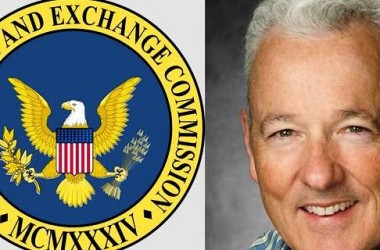
May 15–The US Securities & Exchange Commission (SEC), following policy goals advanced by the Trump administration, is sharpening its focus on encouraging private companies to go public via IPOs. Towards that effort, veteran Silicon Valley tech deal lawyer Bill Hinman, a former partner of Simpson Thacher & Bartlett who has guided the likes of among others, Apple Inc (NASDAQ:AAPL), Alphabet Inc. (NASDAQ: GOOGL) and Facebook Inc (NYSE:FB) has been appointed Director of the SEC’s Corporation Finance division; the unit that oversees initial public offerings. SEC Commissioner Jay Clayton, who has called for scaling back requirements on listed firms and argued the government should make it “more attractive” to go public and according to Clayton, “Bill Hinman is the ideal man for the job.”
The top Corporation Finance Division post will be crucial because of the unit’s role in writing rules that govern public and private capital-raising.
In an interview, Mr. Hinman said “spurring more public offerings is a worthy goal of regulators, because investors benefit from the detailed public disclosures.” Hinman has also voiced his view towards further expanding the 2012 Jumpstart Our Business Startups Act. The law, also known as the JOBS Act, passed with bipartisan support and was hailed as the first sign that Washington understood how the internet could be used to help smaller companies raise money without turning to Wall Street.
“To the extent the SEC can make it more attractive and efficient to raise capital here, we are going to want to do that,” he said. “That is our primary focus and challenge going forward.”
Companies raised $2.1 trillion in private placements of stocks and bonds in 2014, compared with about $1.35 trillion for public sales of equity and debt, according to SEC figures. The decline in U.S. public listings has happened as fast-growing startups such as Uber Technologies Inc. and other “unicorns” have been able to get the cash they need from venture capitalists.
However much deal makers have lauded the SEC’s new-found resolve to promote public offerings, some market participants say they don’t see the problem that Mr. Clayton has said he wants to solve. “The real question is do small-growth companies have access to capital, and they do,” according to Robin Graham, managing director and head of technology, media and communications at Oppenheimer & Co. Inc. “It’s just in the private markets.”
According to Samuel Goldberg, a senior partner at Prospectus.com, a firm that specializes in business plan writing, feasibility studies and the preparation of investor offering documents and guiding private companies throughout the course of both private placements and public capital raising initiatives, “Public markets are ultimately the holy grail for start-up companies; easing the complexities of public listing can prove helpful for those who have private investors seeking exit strategies and enabling share Issuers to attract a new and much broader universe of investors.”